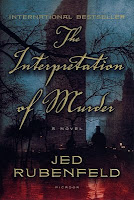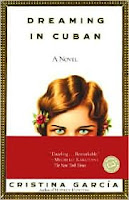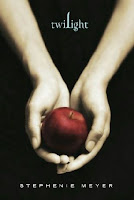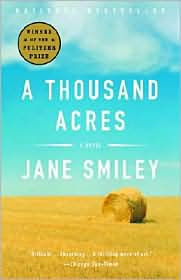Sunday Salon: Theme of the Day "Essays"
I finished Twilight and will be working on the review today. I think this is the first young adult book I have read – or can remember reading. Holy schnickes, what a book! I’ve actually re-read several sections. Not that it could ever be considered adult content, but some of the scenes between Edward and Bella, were, well, uh…very steamy – but a good way. I am no prude, but sometimes I really think less is more, and the way Stephanie Meyers handles this love story, well her less is soooo much more!
About my plans today, and here is the part where I get real goosebumbs: I love reading essays. I also like writing them as I am inspired from time to time by ones I have read or by quotes that pop up from time to time on my Google home page. So today, I planned to catch up on a couple that I have been intending to read. Low and behold several other Saloners have mentioned doing the same. Hmm…great minds thinking alike? Hehe.
For me, I would like to read a couple and see what shakes loose in this ol’ noggin of mine:
“Beauty: When the Other Dancer is the Self” by Alice Walker
This essay derives from an experience Walker had as a child which left her with physical scar that turned out to go much deeper, as this excerpt clearly shows:
This comment of the doctor’s office terrifies me. But it is really how I look that bothers me most. Where the BB pellet struck there is a glob of whitish scar tissue, a hideous cataract, on my eye. Now when I stare at people – a favorite pastime, up to now – they will stare back. Not at the “cute” little girl, but at her scar. For six years I do not stare at anyone, because I do not raise my head.
The essay continues, and shows how Walker gets to the point of realizing that she is not disfigured, but transfigured into a new and better person, especially on the inside. It is a beautiful essay, and for a breast cancer survivor such as myself, left with scars of my own to deal with, Walker’s words have a significance beyond what I can express here.
“Writing and Reading” by Richard Wright
This is not so much an essay as it is a lengthy excerpt from this autobiography Black Boy. This section chronicles how writing his first story affected his life and of those around him. Unfortunately it was not a very positive experience. Yet he persevered. It was through this experience that his resolve was tempered into a strong determination to succeed, even though it alienated him from family and friends. This excerpt also talks about how he discovered his love of reading and how it changes his life, as he is able discover new worlds, literally and figuratively. Along the way, he also speaks of the prejudice encountered as he strives to become the writer he intends to be, and to read those books that will help him get there:
I was building up in me a dream which the entire educational system of the South had been rigged to stifle. I was feeling the very thing that the state of Mississippi had spent millions of dollars to make sure that I would never feel; I was becoming aware of the thing that the Jim Crow laws had been drafter and passed to keep out of my consciousness; I was acting on impulses that southern senators in the nation’s capital had striven to keep out of Negro life; I was beginning to dream the dreams that the state had said were wrong, that the schools had said were taboo.
Looks like I do have a nice Sunday ahead of me, except for the fact it snowed last night and it is only supposed to make it up to 45 F, but here inside its cozy, I have my reading and of course, the NHL playoffs.
GO SHARKS!!
(I just had to…I really did.)






